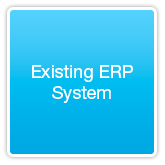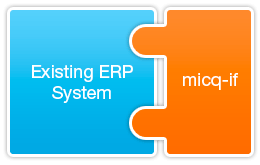How can I protect my investment in my existing ERP system and people but still boost my inventory management capability?
Happy with most aspects of your ERP system?
| Branch staff comfortable and used to order and invoicing approach but have to follow up emergency orders, lose sales, cut prices... |
 |
Basic forecasting and inventory level setting techniques which struggle to handle seasonality, low demand, long 'tail' product ranges... |
You may well be happy with most aspects of your ERP system. After all, your branch staff are all trained. The system processes orders and invoices very effectively. Your investment has been mainly a good one. There is little pressure to upset this happy situation, except that the system is not so good at handling forecasting. Its ‘days of stock’ approach struggles with many low volume products. It keeps recommending you stock 1 when you know people use two at a time. You need to do a lot of manual overrides where the system cannot cope.
You might be able to ‘supercharge’ your existing ERP system?
| Improved product range with fewer emergency orders, greater productivity, improved inventory turnover, improved service, satisfaction and sales... |
 |
Advanced Inventory Mangement capabilities including:
Matched Items
Common Quantities
Inventory Level Optimisation
...
|
You can greatly extend your capabilities by ‘bolting on’ micq-if, a bit like adding a supercharger to an existing motor vehicle. You can protect and leverage your existing ERP systems investment (I.T., processes, staff knowledge, culture). micq-if can use your sales history and handle your planning to produce better mins and maxes and purchase order recommendations which can be fed back into your original ERP system. The branch staff will like not having to waste as much time following up emergency orders. You can realise the potential benefits of improved inventory utilisation and profitability. You may well be able to reposition your organisation in terms of customer service, satisfaction, reputation … and gross margin opportunity.